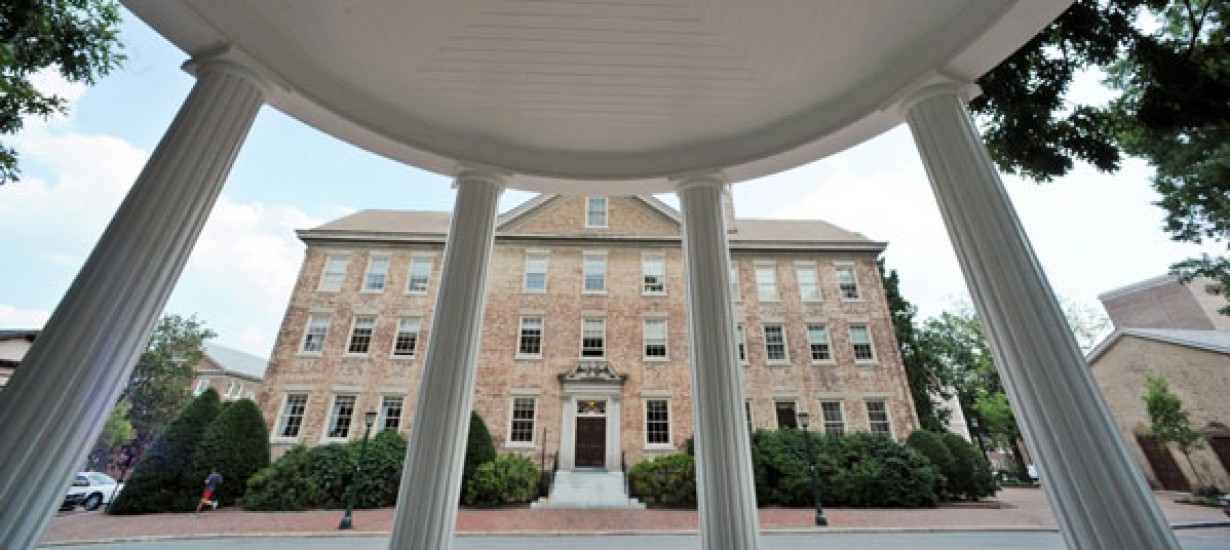For 6th Year, No In-State Tuition Increase

The UNC System Board of Governors voted last week to extend for a sixth consecutive year a freeze on in-state tuition.
Resident tuition at UNC Chapel Hill will remain at $7,019 per year, the same that it has been since 2017. Out-of-state tuition, however, will rise to $35,580, an increase of $680.
“In real terms, the tuition at our state’s world-class universities is lower today than it was in 2016,” said UNC System President Peter Hans. “There is not another public university system in the country that can say that.”
That student-friendly stand for affordability is also putting pressure on campus budgets. University officials have cited the lack of new tuition revenue as a reason for stagnating faculty salaries and challenges in supporting financial aid, since student fees and living expenses continue to rise.
Board of Governors Chairman Randy Ramsey acknowledged that reality in his remarks last week, praising the University’s fiscal discipline but promising to revisit the tuition freeze soon. “I do want to recognize for the chancellors and CFOs in the room that we understand six years of flat tuition is putting a strain on you,” he said, referring to the chief financial officers on each campus. “I don’t think anybody here believes that you’re immune from inflation. While we want to keep things as low as possible … we do recognize we’re going to have to give you different guidance going forward.”
During a Feb. 2 event sponsored by the Coalition for Carolina, former UNC Chapel Hill chancellor James Moeser said tuition revenue is vital for supporting academic quality, citing his experience in raising tuition to fund more competitive compensation for faculty. “At Chapel Hill, we had been using campus-based tuition increases as the fuel for faculty salaries,” said Moeser, who served as chancellor from 2000 to 2008. Halting those increases has been damaging, he argued.
Tuition rates at public universities nationwide have leveled off over the past few years following two decades of steep increases. The average tuition rate at four-year public colleges nearly tripled between 1991 and 2001 from $3,800 to $10,560, but actually decreased slightly last year, according to the College Board’s annual Trends in College Pricing report for 2021-22. The report found that UNC Chapel Hill’s in-state tuition has decreased more than 6% in inflation-adjusted terms during the past five years, one of the sharpest drops of any flagship institution in the country.
In addition to the systemwide freeze on in-state tuition adopted by the Board of Governors, the most recent budget passed by state lawmakers expands the NC Promise program, which drops resident tuition to $500 per semester at UNC Pembroke, Western Carolina, Elizabeth City State, and — starting next year — Fayetteville State.
Hans celebrated the state’s commitment to affordability, citing North Carolina’s constitutional mandate to keep higher education free of expense “as far as practicable.”
“Low tuition is only half the equation that makes our universities such a tremendous value,” Hans said. “The other half is the public investment that keeps them strong.” About 16 percent of UNC Chapel Hill’s budget comes from state appropriations, totaling about $540 million in 2021.
Hans and a majority on the Board of Governors argue that low tuition is vital in maintaining public support for UNC, sending a signal that higher education is within reach for most families.
“The sticker price matters for what it communicates to our students and their families about college,” Hans explained. “For many years, the reality of regular tuition increases entrenched a narrative that college was not a universal opportunity available to all qualified students, as our ideals envision, but an expensive luxury for those who can afford it.”
